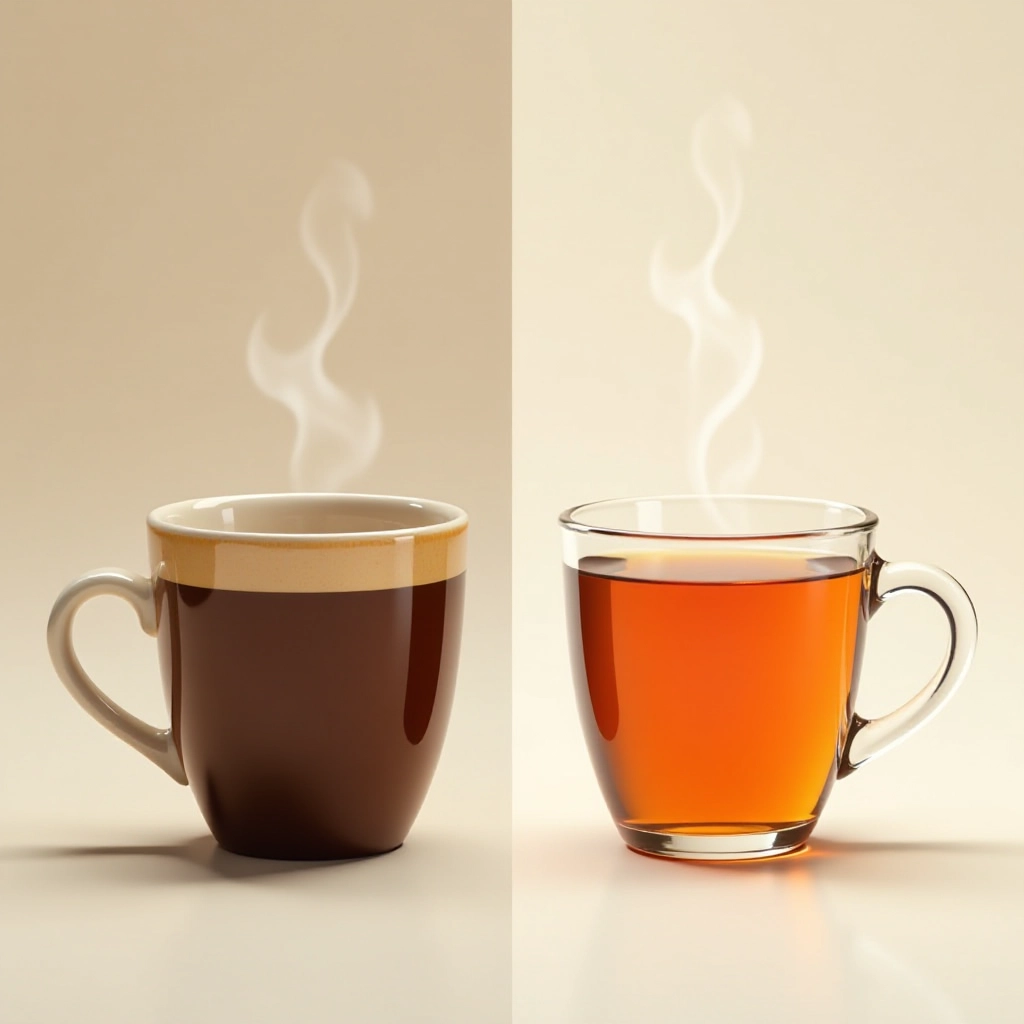Caffeine is a natural stimulant found in coffee beans, tea leaves, and other plants. It works by blocking adenosine receptors in the brain, which delays feelings of tiredness and promotes alertness. This effect typically peaks within 30 minutes of consumption and can last for several hours.
While caffeine can enhance focus and energy, excessive intake may lead to side effects such as insomnia, anxiety, and increased heart rate. The FDA recommends a daily limit of 400 mg for most adults.
Average Caffeine Content in Coffee and Tea
The caffeine content in coffee and tea varies based on factors like type, preparation method, and serving size. Here’s a general comparison:
Coffee (per 8 oz serving):
- Brewed coffee: 95–200 mg
- Espresso (1 oz shot): 63–75 mg
- Instant coffee: 30–90 mg
- Decaffeinated coffee: 2–15 mg
Tea (per 8 oz serving):
- Black tea: 40–70 mg
- Oolong tea: 30–50 mg
- Green tea: 20–45 mg
- White tea: 15–30 mg
- Herbal tea: 0 mg (caffeine-free)
As evident, coffee generally contains more caffeine than tea, making it a stronger stimulant.

Factors Influencing Caffeine Levels
Several elements affect the caffeine content in your cup:
- Type of Bean or Leaf: Robusta coffee beans have more caffeine than Arabica. Similarly, black tea leaves contain more caffeine than green or white tea leaves.
- Brewing Method: Longer brewing times and higher temperatures extract more caffeine. For instance, cold brew coffee, steeped for extended periods, often has higher caffeine levels.
- Serving Size: Larger servings naturally contain more caffeine. A 16 oz coffee will have more caffeine than an 8 oz cup.
- Roast Level: Contrary to popular belief, lighter roasts have slightly more caffeine than darker roasts due to density differences.
Types of Coffee and Their Caffeine Content
Different coffee preparations yield varying caffeine levels:
- Drip Coffee: Typically contains 95–200 mg per 8 oz.
- Espresso: A 1 oz shot has about 63–75 mg.
- French Press: Ranges between 80–135 mg per 8 oz.
- Cold Brew: Can have 150–240 mg per 8 oz, depending on steeping time.
- Instant Coffee: Varies from 30–90 mg per 8 oz.
Varieties of Tea and Their Caffeine Content
Tea types differ in caffeine content:
- Black Tea: Contains 40–70 mg per 8 oz.
- Oolong Tea: Has 30–50 mg per 8 oz.
- Green Tea: Offers 20–45 mg per 8 oz.
- White Tea: Provides 15–30 mg per 8 oz.
- Herbal Tea: Generally caffeine-free.
Brewing time and temperature also influence caffeine levels; longer steeping and hotter water extract more caffeine.HotBot+1The Spruce Eats+1
Comparing the Effects of Coffee and Tea
While both beverages contain caffeine, their effects can differ:
- Coffee: Delivers a quick energy boost, which can be beneficial for immediate alertness but may lead to jitters or a crash later.
- Tea: Provides a more gradual increase in alertness. The presence of L-theanine in tea promotes relaxation without drowsiness, offering a balanced energy lift.
Your choice depends on your sensitivity to caffeine and desired effect.
Benefits and Risks of Caffeine Consumption
Benefits:
- Enhances mental alertness and concentration.
- May improve physical performance.
- Associated with reduced risk of certain diseases, like Parkinson’s and type 2 diabetes.
Risks:
- Excessive intake can cause insomnia, nervousness, and increased heart rate.
- May lead to dependency or withdrawal symptoms.
- Can exacerbate anxiety or digestive issues in sensitive individuals.
Moderation is key to reaping the benefits while minimizing risks.
Choosing Between Coffee and Tea
Consider the following when deciding:
- Desired Caffeine Level: For a stronger kick, opt for coffee; for a milder effect, choose tea.
- Sensitivity: If you’re prone to jitters or insomnia, tea may be more suitable.
- Health Goals: Both beverages offer health benefits; select based on your specific needs and how your body responds.
Tips for Managing Caffeine Intake
- Monitor your total daily caffeine consumption, aiming to stay below 400 mg.
- Avoid caffeine late in the day to prevent sleep disturbances.
- Gradually reduce intake if experiencing side effects.
- Stay hydrated and maintain a balanced diet to support overall well-being.
Final Thoughts: Striking the Right Balance
Understanding the caffeine content and effects of coffee and tea empowers you to make informed choices aligned with your health and lifestyle. Whether you prefer the robust energy of coffee or the gentle lift of tea, moderation and mindfulness are essential.

















